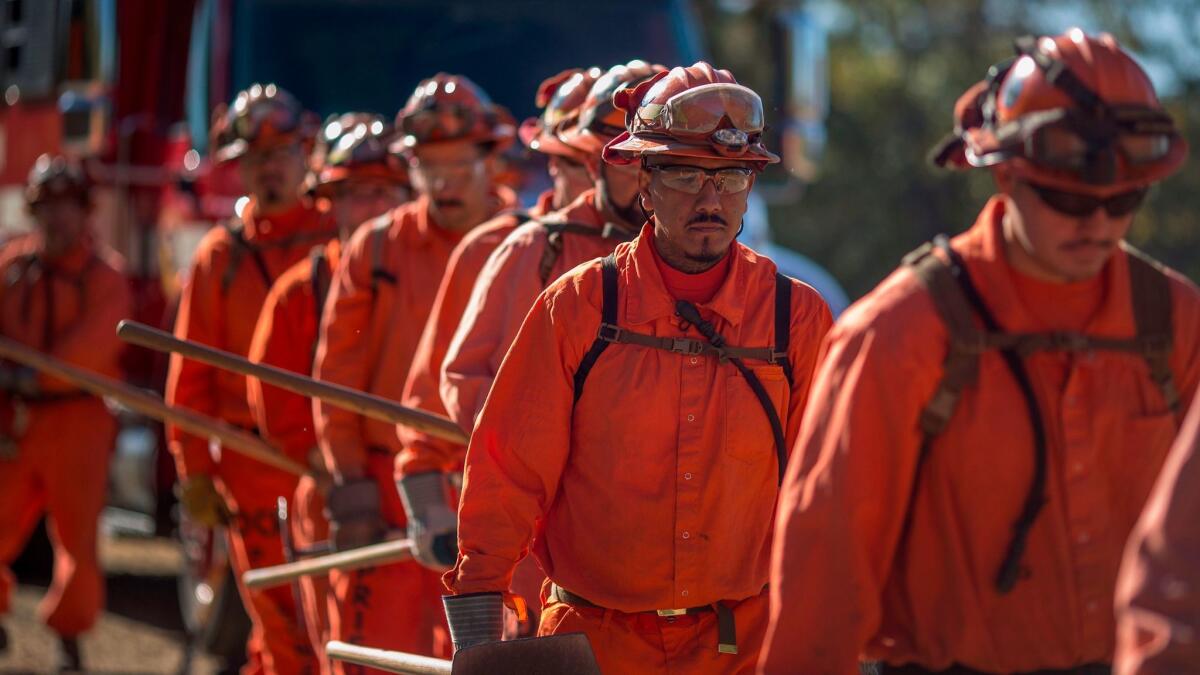Letters to the Editor: Inmate firefighters save lives. Let them find work after release

- Share via
To the editor: As a volunteer who regularly visits Fire Camp 13 deep in the mountains near Malibu, I can attest to the valuable human resource these female firefighters offer to our society. Devoted, skilled, generous and brave, these women have found new personal dignity and worth in the incredible devotion they bring to the people they serve. (“Inmates risking their lives to fight California’s wildfires deserve a chance at full-time jobs,” editorial, Nov. 1)
They are not the same people they were when they were arrested for nonviolent crimes. Despite a state law that prevents them from doing so, they deserve the opportunity to apply their new skills in an area where their expertise is urgently needed.
Last year, these women fought the Woolsey Fire, first trying to save their own camp engulfed in flames, and then the homes of their neighbors like me. I trust them completely.
Nan Cano, Westlake Village
..
To the editor: According to the editorial, local emergency services must deny an Emergency Medical Technician certification to a felon who has been trained by the state to fight fires.
A felony in California is a crime that carries a maximum sentence of more than one year in jail or prison. The crimes included as a felony cover a broad range and may only entail probation.
Supposedly a person must pay his or her debt to society by being punished. After serving the punishment, why isn’t the debt considered paid? Why does society continue to punish?
When does a person get a “paid in full” receipt?
Bill Brock, Agoura Hills
More to Read
A cure for the common opinion
Get thought-provoking perspectives with our weekly newsletter.
You may occasionally receive promotional content from the Los Angeles Times.









